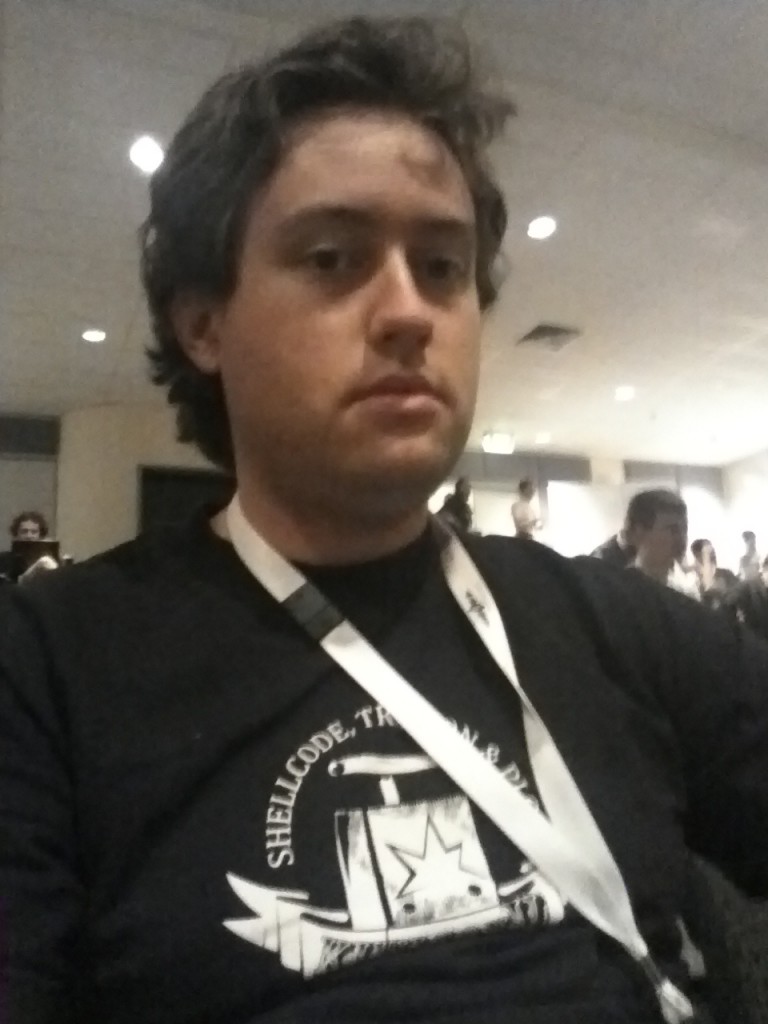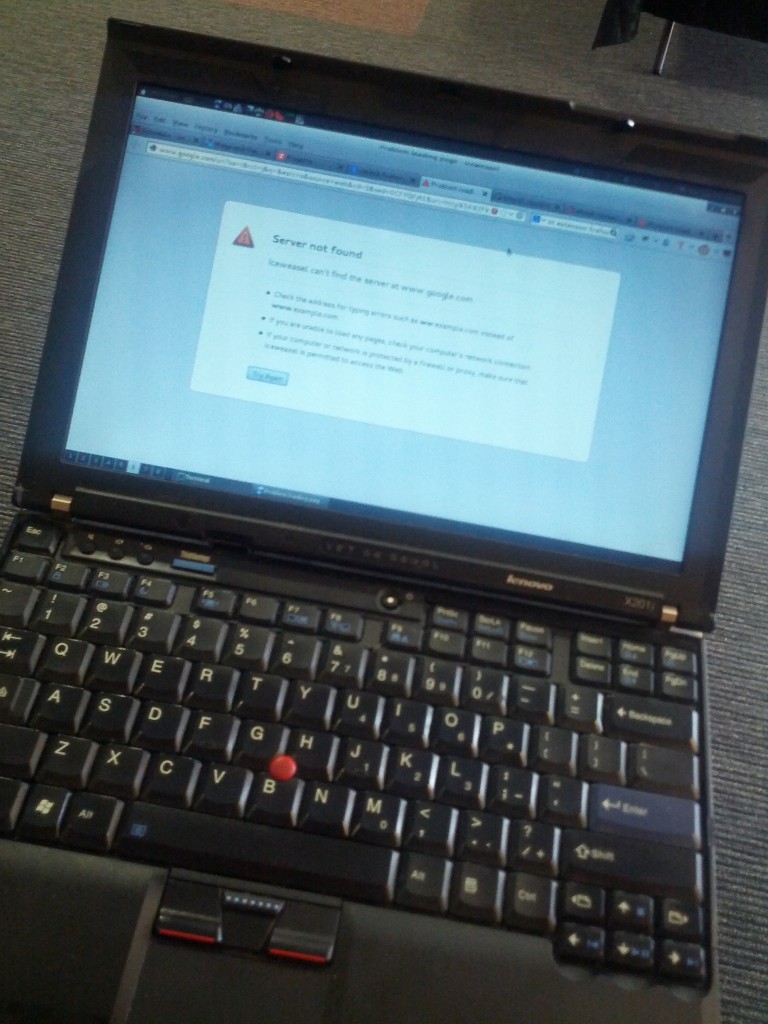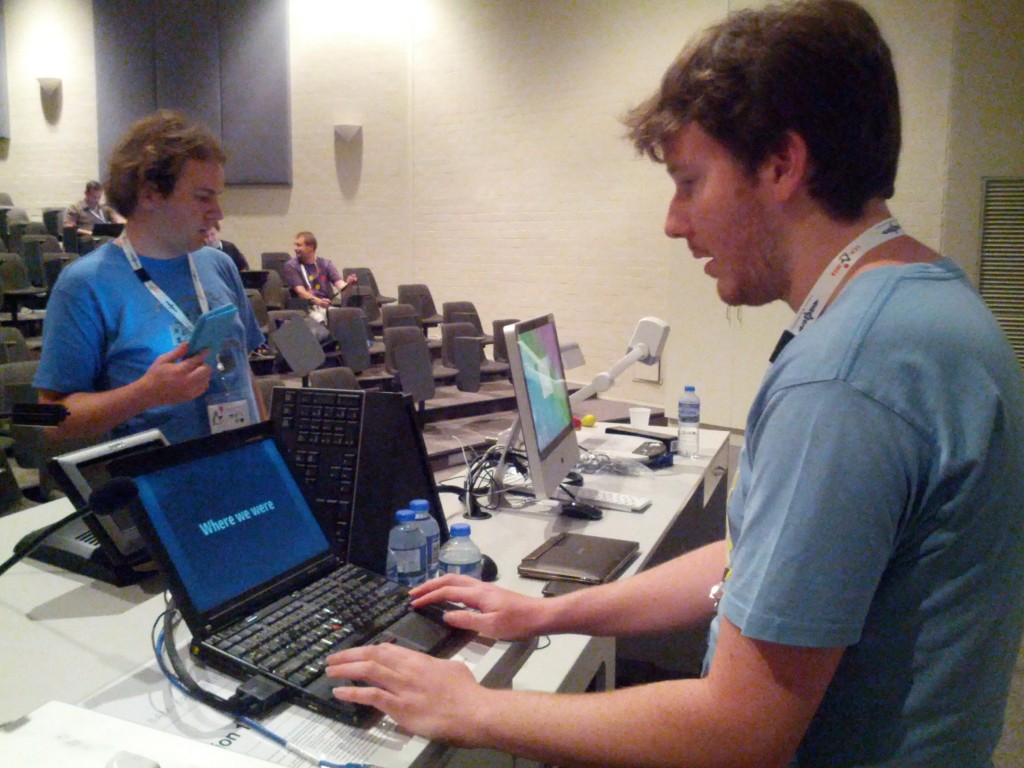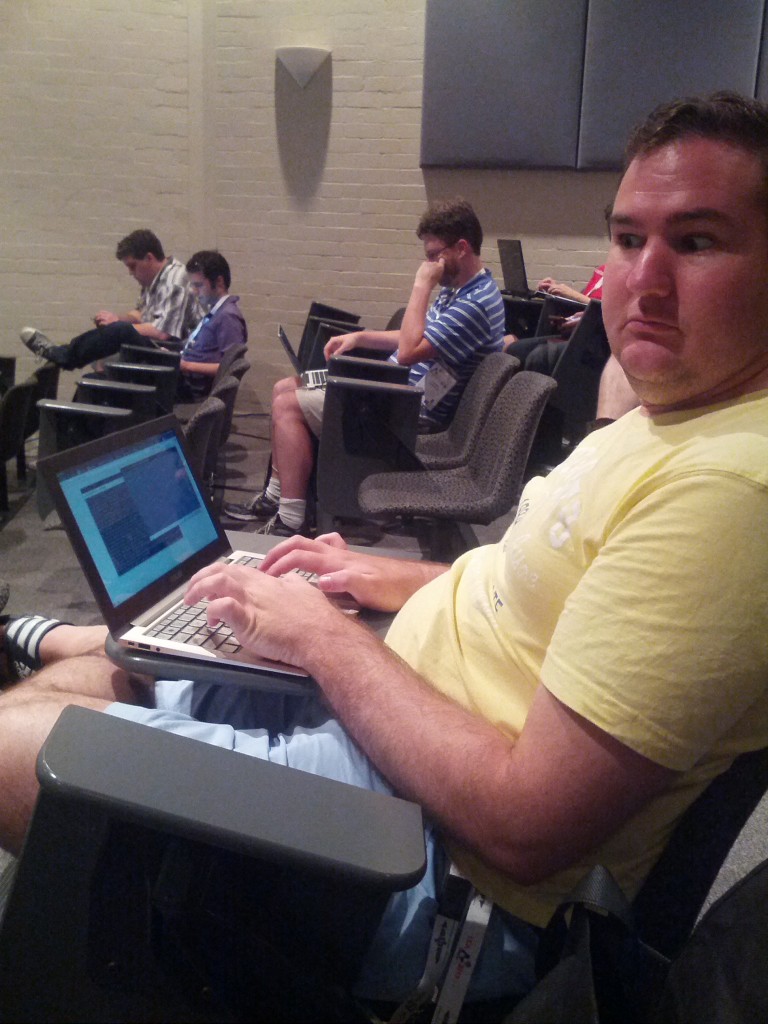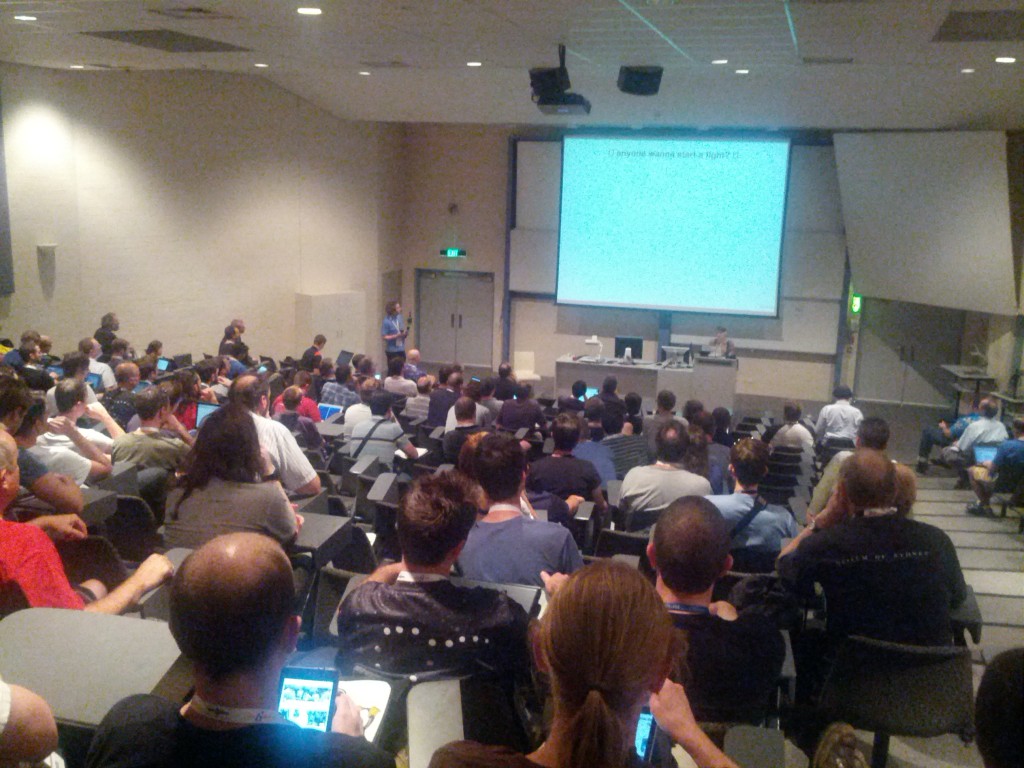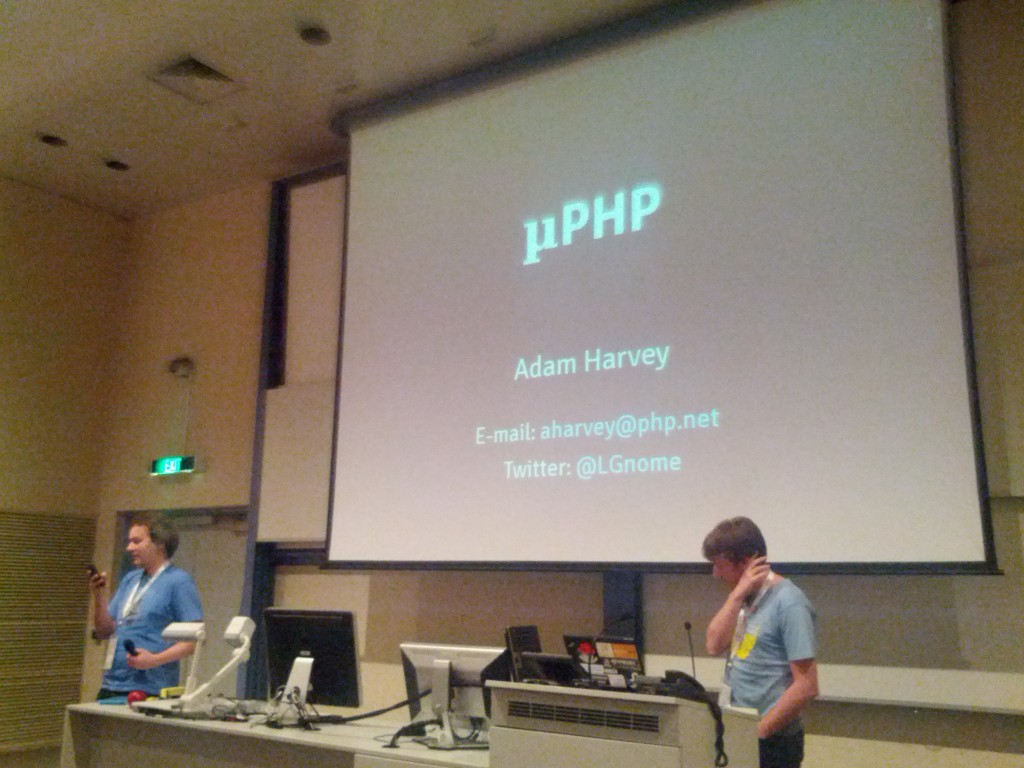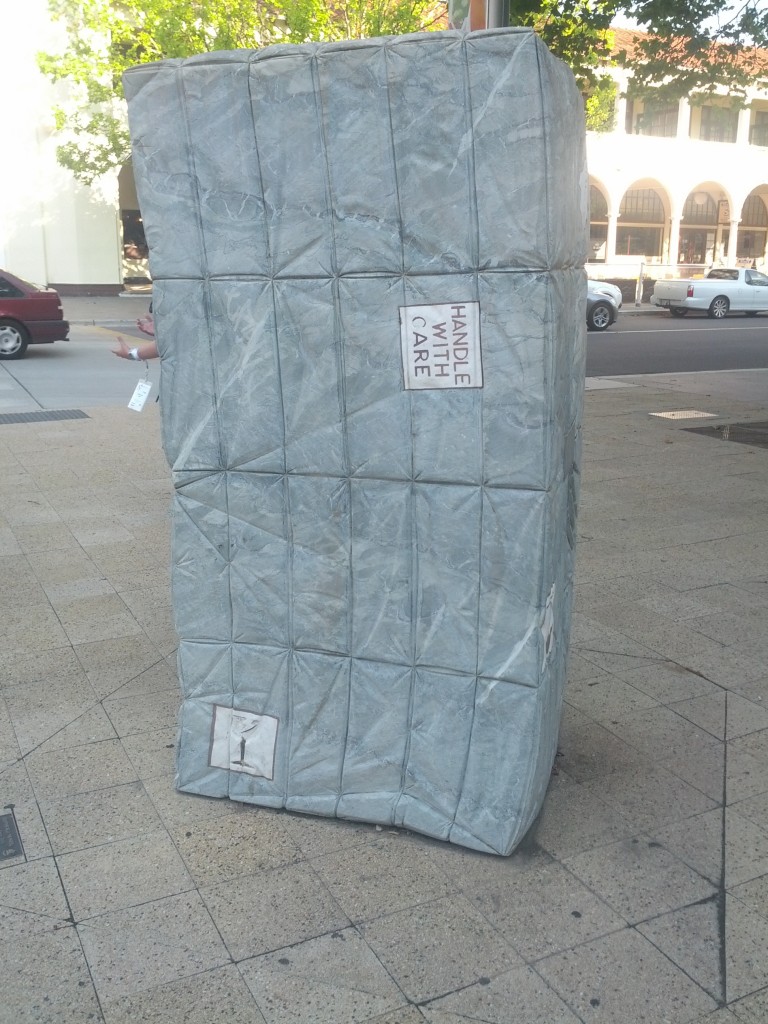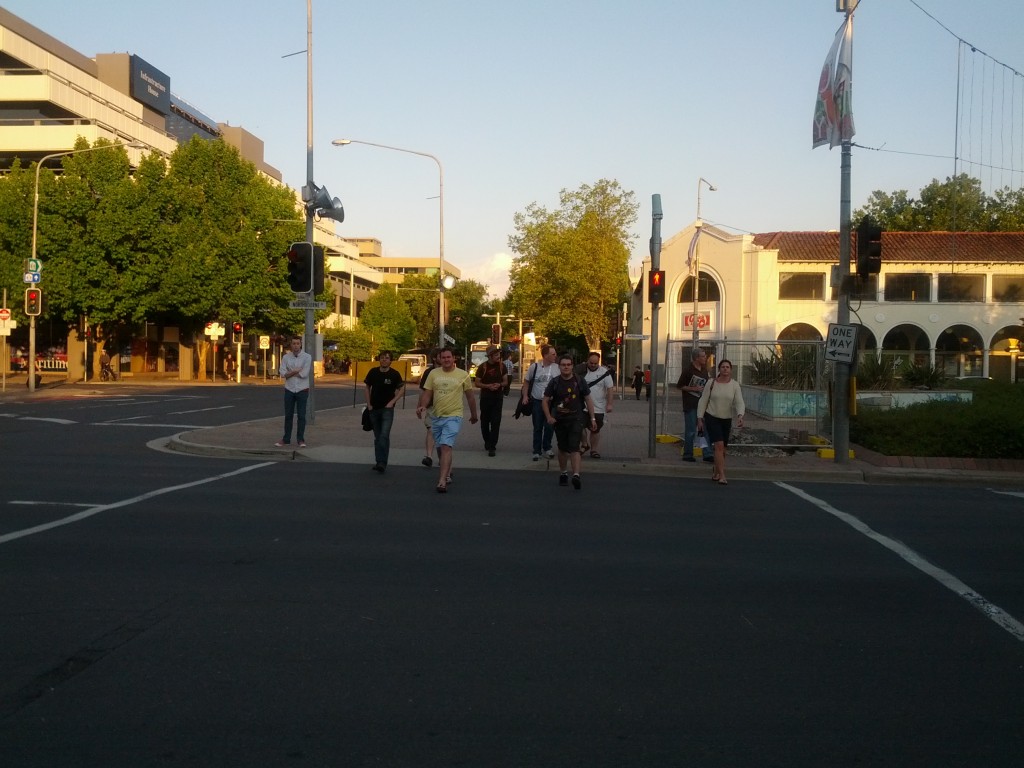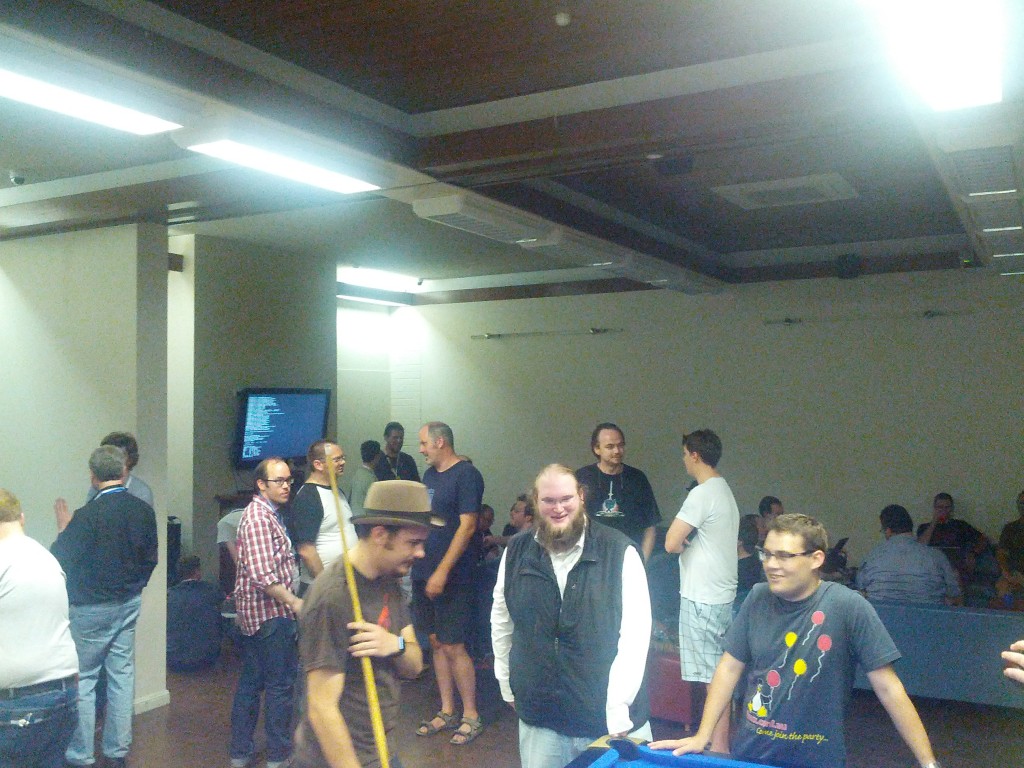The second day of linux.conf.au has been and gone, was another day of interesting miniconf talks and many geeky discussions with old and new friends.
The keynote was a really good talk by Radia Perlman about how engineers approach developing network protocols and an interesting talk of the history of STP and the designed replacement, TRILL. Great to see a really technical female keynote speaker at LCA this year, particularly one as passionate about her topic as Radia.
The conference WiFi is still pretty unhappy this year, I’ve been suffering pretty bad latency and packet loss (30-50%) most of the past few days – if I’ve been able to find an AP – seems they’re only located around the lecture rooms. Yesterday afternoon it seems to have started improving however, so it may be that the networking team have beaten the university APs into submission.
Of course, some of the projectors decided not to play nicely, which seems pretty much business as usual when it comes to projectors and functioning…. it appears that the projector in question would complain about the higher refresh rates provided by DVI and HDMI connected devices, but functioned correctly with VGA.
Someone did an interesting talk a couple of LCA’s ago on the issue, apparently many projectors lie about what their true capabilities are and request resolutions and refresh rates from the computer that are higher than what they can actually support, which really messes with any modern operating system’s auto-detection.
A few of my friends were delivering talks today, so I spent my time between the Browser miniconf and Open Programming miniconf, picked up some interesting new technologies and techniques to look at:
- Adam Harvey’s PHP talks were great as usual, always good to get an update on the latest developments in the PHP world.
- Francois Marier from Mozilla NZ presented on Content Security Policy, a technique I wasn’t aware of until now. Essentially it allows you to set a header defining which sites should be trusted as sources of CSS, Javascript and image content, allowing a well developed site to be locked down to prevent many forms of XSS (cross site scripting).
- Francios also spoke briefly about HTTP Strict Transport Security, a header which can be used by SSL websites to fix the long standing problem of users being intercepted by a bad proxy and served up a hacked HTTP-only version of the website. Essentially this header tells your browser that your site should only ever be accessed by HTTPS – anything that then directs your browser to HTTP will result in a security block, protecting the user, since your browser has been told that the site should only ever be SSL from it’s previous interaction. It’s not perfect, but it’s a great step forwards, as long as the first connection is made on a trusted non-intercepted link, it makes man-in-the-middle attacks impossible.
- Daniel Nadasi from Google presented on AngularJS, a modern Javascript framework suitable for building complex applications with features designed to reduce the complexity of developing the required Javascript.
After that, dinner at one of the (many!) Asian restaurants in the area, followed by some delicious beer at the Wig and Pen.
Another great day, looking forwards to Wednesday and the rest of the week. :-)
